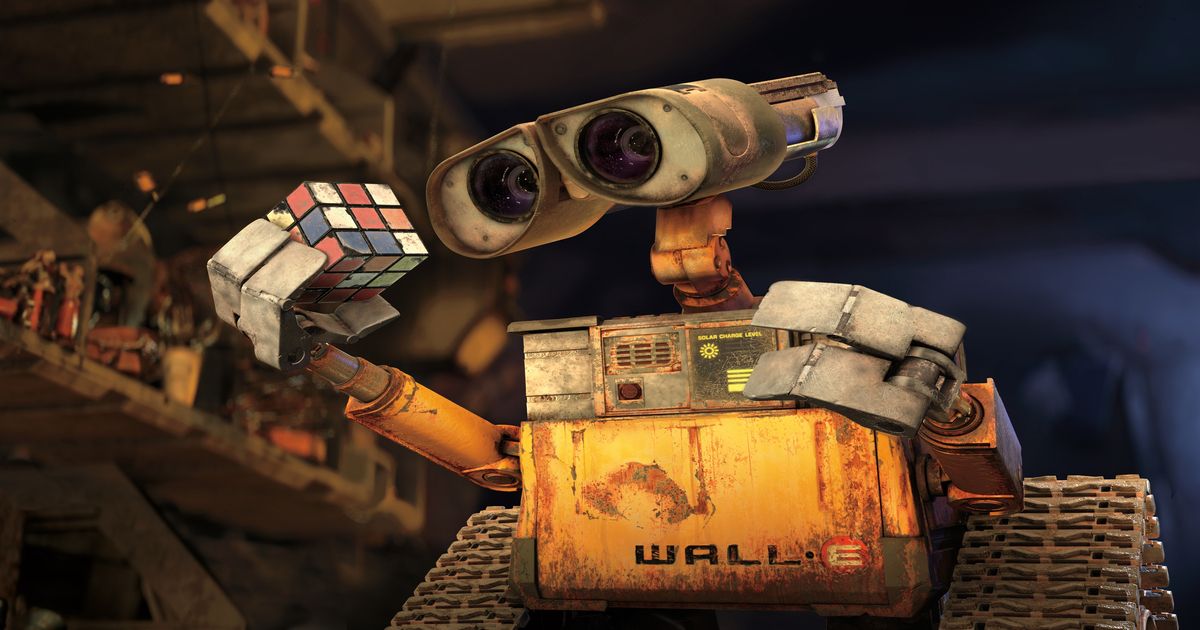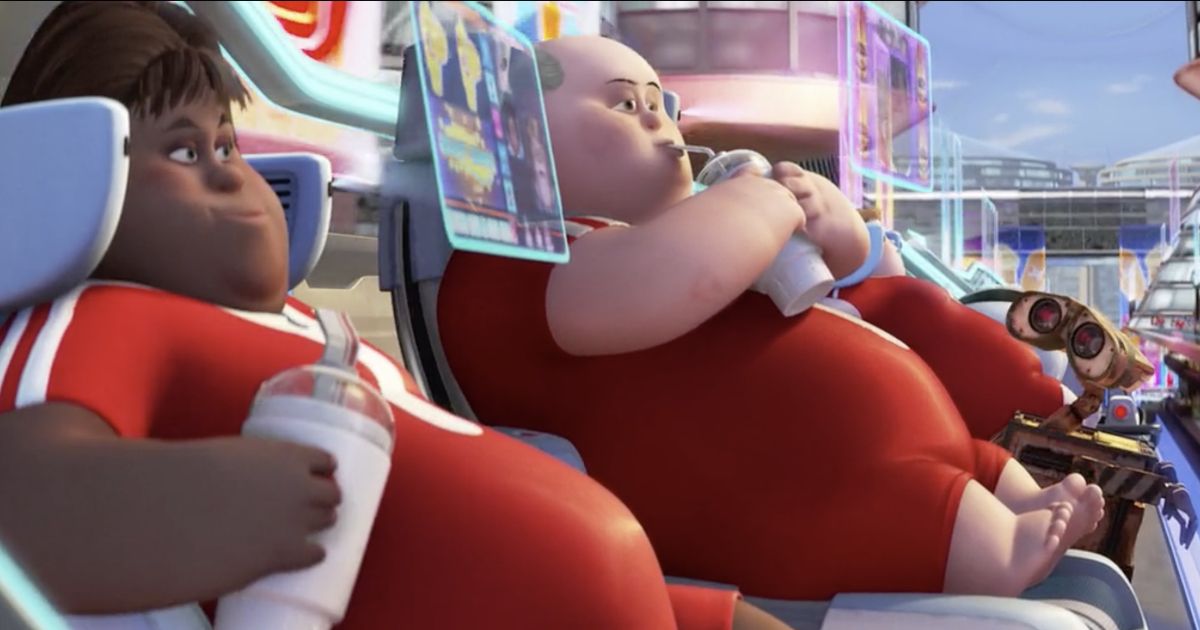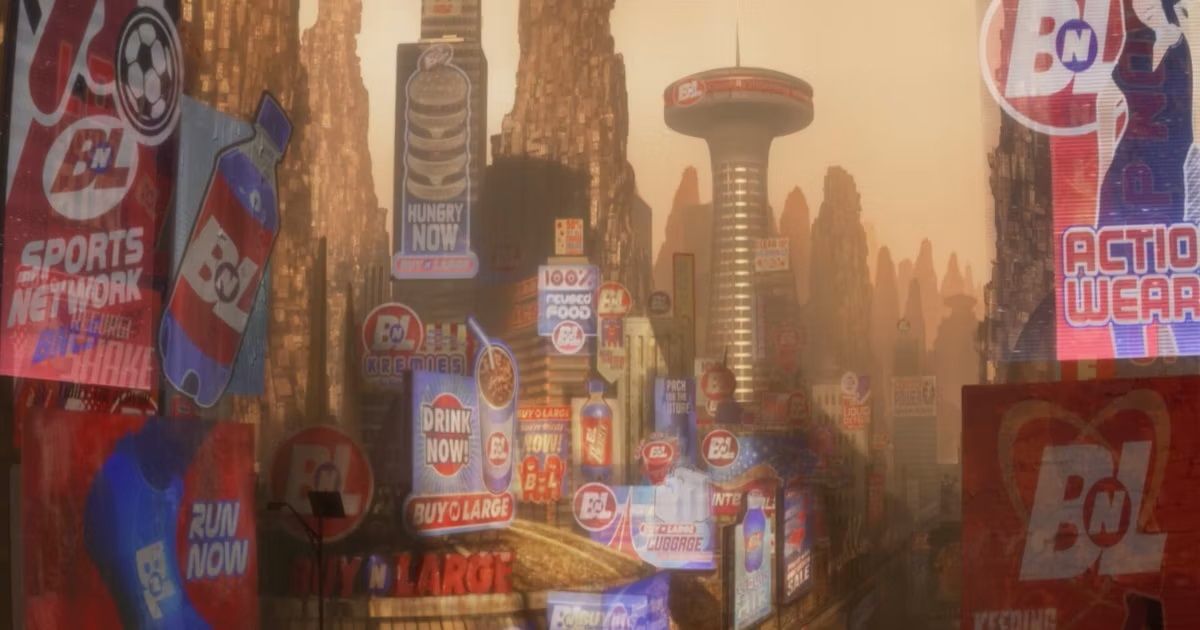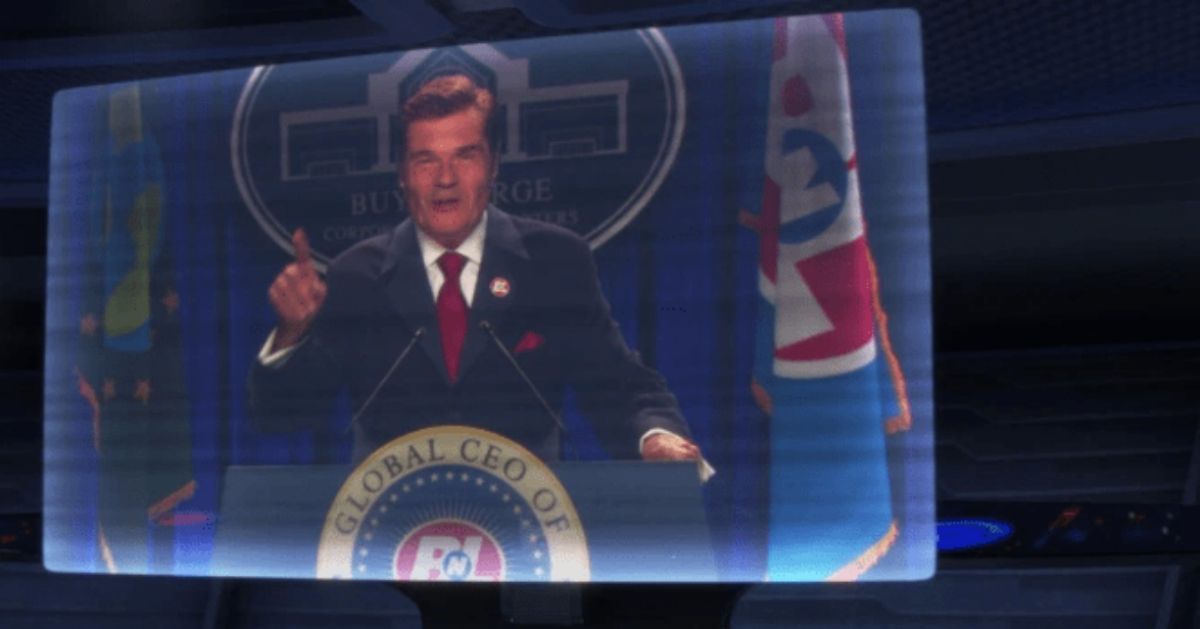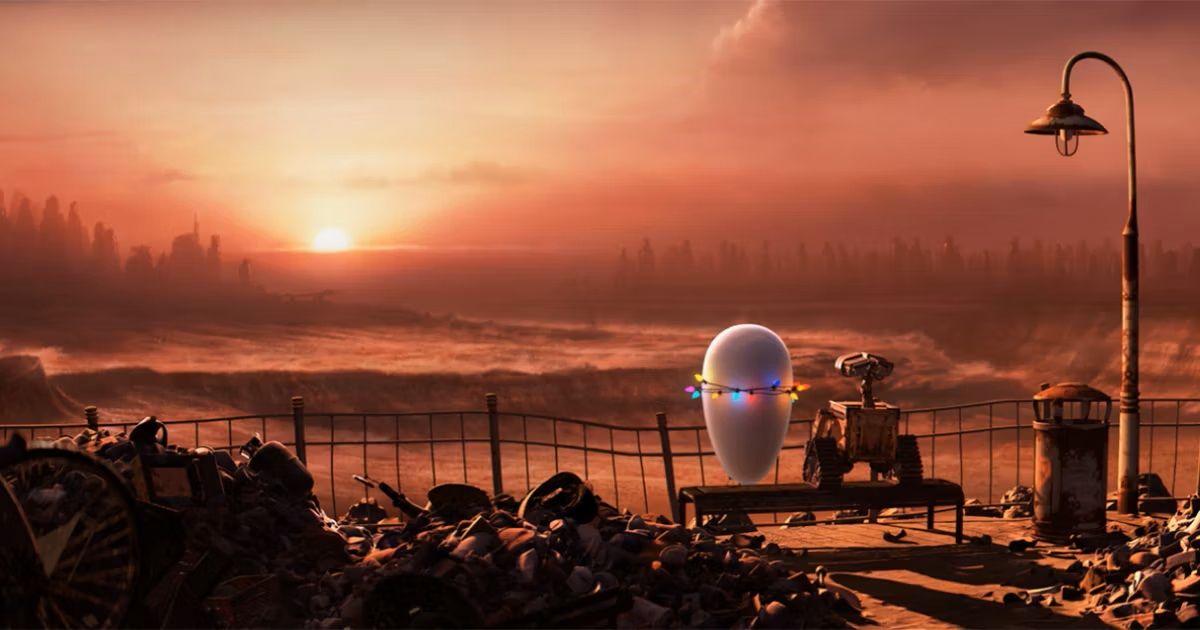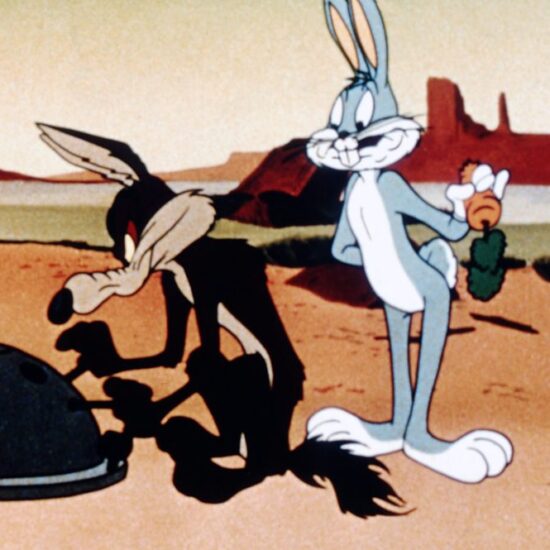
WALL·E is a 2008 Pixar movie that, like most Pixar films, was very successful and acclaimed, making $521 million in revenue and earning 95% on Rotten Tomatoes. The movie focuses on a dystopian sci-fi future where the Earth has become uninhabitable and humans have escaped to space, leaving machines to clean up the mess they’ve made on Earth.
Many decades later, WALL-E is the last robot helping to clean the planet, as all others have broken down in the face of massive trash towers. When a new robot comes from the sky, a scout from the spaceship named Eve, WALL-E tries to befriend her, having learned human compassion and love through old movies he found among the trash.
During their time on Earth together, the two robots find a plant and deliver it back to the spaceship of humans. Unfortunately, this sparks a feud between the head robot Auto, who steers the ship, and the human captain, who is trying to return to Earth now that this plant proves life is sustainable again. In many ways, this depiction of the future shows the two robots having more humanity than the humans who have gorged themselves on food and entertainment, having trashed Earth and left it behind. This is only one way that WALL-E is surprisingly radical in its depiction of humanity, ecology, technology, and the future, all before the massive popularity of technologies like iPhones.
One small side plot of the movie concerns two humans who look away from the screens for the first time due to WALL-E and Eve’s accidental involvement. As the only two people experiencing real life, they enjoy each other’s company, discovering things that have always been right in front of their faces.
New 4K Release of Wall-E Announced For The Criterion Collection
From the physical touch of another person to finding they have a pool that thousands of people sit in front of but don’t see because of the screens, these two humans experience what no one else on the ship realizes is a possibility. Technology taking over our lives is the trope of much dystopian media and is a constant political discussion. Is technology hurting humanity, even as it seemingly helps? Is too much of a good thing bad? WALL-E was asking these questions before apps like Instagram were even in motion.
Robot Overlords
A common trope in sci-fi movies concerns robots rising against the humans. WALL-E, on the other hand, is probably a little more accurate; no AI became sentient and all-knowledgeable or grew feelings of resentment. Instead, the technology created by humanity is following orders all too well.
The robots kept humans perfectly happy and alive to the best of their ability, and the humans did not realize how much they depended on the machines. Not having to actually do anything, people turn into disgusting hedonists, endlessly consuming without ever contributing, echoing Karl Marx’s statement that, “The production of too many useful things results in too many useless people.”
This depiction shows the scary truth of how much we have started to rely on devices. Some might assume that they’d never end up like this, but if you grow up that way, you don’t notice these issues, and few notice the slight shift of reliance over time. Google and mobile phones have made it so that people don’t need to remember phone numbers or facts; the machines do it for them. In WALL-E, the result is a humanity which trashes everything around them while they grow fat and stupid.
Health and Environment Issues
Waste, trash accumulation, ozone depletion, ecological collapse and climate change — are all discussed today, showing the consequences if we do nothing to fix the problem until it’s too late. In WALL-E, the world as we know it was destroyed, having to be abandoned for millennia until life could be sustainable again. This movie accurately portrays a worst-case scenario for not saving our planet from the road we are heading down.
In addition to planetary health, WALL-E discusses physical, human health. Obesity has been a topic discussed in the United States as a growing epidemic for many years now. However, this movie takes it to the extreme. Everyone is so obese that they can barely walk, instead sitting in hover chairs; again, the machines move for them. They are constantly being catered to, not knowing the feeling of anything else, as the people grew larger and larger as each generation was born.
Free Will vs Advertisement
The concept of advertisements controlling people’s lives, subconsciously pushing them towards specific goals, is another dystopian endgame that WALL-E plays with. For example, in one scene, all the passengers are wearing one color suit, then an advertisement comes for a different color, and immediately everyone changes colors. Similarly, the advertisements are all about drinks, food, clothing, and luxury that make life easier. Corporate monopolies have taken over, as the evil fictional conglomerate Buy n Large has (like Disney, ironically) bought out so many other businesses and control the advertising market.
The humans accept all these things and then become lazier, unable to fend for themselves in the spaceship without robot assistance. All they do is consume what they want, but how much of what they want is actually their own desire, and how much is simply influenced by advertising? Again, these are complex, dark cultural questions for a Pixar movie.
Officials Lying to the Public
The president himself (played by the late, great Fred Willard) tells the robot that took over the ship to make sure they don’t come back, to keep them in space, and sparked the robot following these orders even when life was discovered to be sustainable. The president doesn’t tell the public. Instead, the humans are just waiting indefinitely to return without knowledge that the world was given up on before they were born. Politicians and trusted members of society not being truthful and lying is a prominent political topic that is often in the news outlets in this age.
Politically Radical?
The most interesting thing about this movie is that, based on all these concepts, it would seem like the political issues would be shoved in your face; they are not. They are expertly hidden in plain sight, behind the central romance between these two robots trying to save a tiny plant.
And this is all why WALL-E is Pixar’s most politically radical film — it’s able to convey these messages with subtlety to younger audiences, the ones who can potentially prevent the future that WALL-E depicts. It shows the extremes which will result from refusing to handle the many significant issues that are brought up in the film. For our own sake, we should all hope to not end up like the humans in WALL-E, because, in our real-life future, we won’t have WALL-E and Eve to save us.







